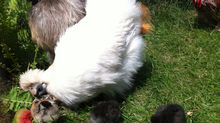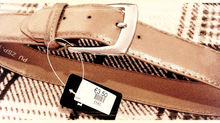What Not To Feed Your Flock
- Grumpy Chicken
- Feb 28, 2017
- 6 min read

When it comes to what is safe vs what could be harmful to feed to your chickens it can be quite a challenge to find a solid factual list of do's and don't's. There is a huge amount of debate between flock owners, veterinarian's and the like and it can really leave your head spinning.
The problem is that dietarily speaking, as with us humans, aside from the bigger obvious no no's like junk food, chocolate and anything that has gone bad, which most people will accept do not make for a healthy diet for anyone, every individual's approach to food health differs to some degree or other.
Often I find that certain foods can end up vilified and on the 'toxic no go' list for doing nothing more than subtly changing the taste of your chickens eggs (as can be the case with garlic, onion and asparagus) or giving your bird a mild case of flatulence (albeit not so pleasant for their coop mates it is hardly a fatal outcome)
Before we begin I just want to make it clear that this post is simply a review of my own findings when it comes to feeding my flock. Any food, even those on the approved list, when provided in excess is not healthy for your chickens (or for us humans for that matter) Even the foods that are good for us all should be fed in considered moderation in order to achieve a truly healthy diet and happy healthy chooks.
That being said here is my list of the main foods that I would steer clear of when it comes to feeding my flock and the reasoning behind it.
Avocado
Avocado's are not entirely toxic to chickens but from what I have read both the dark green outer skin and the brown coating (or possibly the entirety) of the large seed inside are both incredibly toxic to animals. The flesh itself, from what I can find, is not actually harmful but considering the high cost of avocados, the limited availability and the fact that there are many other foods which are 100% safe and provide the same health benefits I just don't see the value in taking the risk at all when it comes to my little feathered family.
Chocolate
As i'm sure you all know, chocolate (although tasting fabulous!!) is actually toxic to humans and most animals too, if eaten in a large enough dose. As far as my chickens go (whilst I wouldn't feed it at all voluntarily) if they did somehow happen upon some left over crumbs of chocolate cake or a half sucked smartie lovingly gifted to them by my friends son or daughter I wouldn't immediately panic and rush them to the vets to have their little stomachs pumped.
Chickens cannot resist sweet things, this is a universal truth, but the fact is there are so many non toxic alternatives such as honey, watermelon and carrots which all provide that much clucked over sweetness so once again chocolate is something that is best avoided completely.
Junk Food
Junk food whilst not technically 'toxic' in the main (aside from the obvious items such as chocolate) is not the healthy choice for your flock. Fried foods or foods with high sugar and salt content are just as unhealthy for your chickens as they are for you. It can be tempting to view chickens as a living garbage disposal system due to their proclivity to eat nearly everything that you throw in to their dish but if you want happy healthy and hopefully long lived chickens then I would steer clear of anything that comes from the local take away.
Moldy Food
As a general rule if you wouldn't eat it don't feed it to your pets. Mold is a killer and anything moldy definitely belongs on the toxic don't touch it list. This applies not only to kitchen scraps but store bought grains and chicken feed too. grain mold is lethal to chickens which is why keeping a clean coop and removing uneaten food regularly is a must for all chickens keepers. I find that as long as you stick to the correct portion size for your birds, however, you can reduce waste food down to the bare minimum which means less work for you and also more importantly a safer cleaner home for your chickens.
Dry Rice
Again this can be lethal for your chickens. Dry rice when consumed swells up inside on contact with moisture and would cause your birds insides to rupture resulting in a very unpleasant traumatic death. I keep my rice store well out of reach and if any is spilled I immediately shoo the dog out of the room and collect it up, disposing of it safely in the bin. Definitely on the 'never' list when it comes to your chicken's diet.
Properly cooked rice however is perfectly safe as long as it is fresh and hasn't been allowed to sit unrefrigerated for too long after cooking. I often feed both freshly cooked and store bought unsweetened puffed rice (the ones from the pet section not a box of kellogg's sugar puffs!) to my flock as a very healthy addition to their staple grains.
Dried or Undercooked Beans
Dried or undercooked beans are just as toxic to humans as they would be to your flock and eating them can prove fatal so definitely one to completely avoid as well.
Properly cooked or fully sprouted (to the two leaf stage) beans are safe however and provide a great source of protein. Personally I stick with lentils most of the time as lentils aren't toxic even in their uncooked stage and are also high in protein (I wouldn't feed lentils to my flock uncooked either though as they are far more nutritious when sprouted and far easier for your birds to digest sprouted or when properly cooked)
Raw Eggs
Aside from being gross, in my opinion, feeding your chickens their own raw eggs (whilst not at all harmful) could cause them to develop a taste for freshly laid eggs and once they do you may find nothing left in the coop each morning for your breakfast. Also if the eggs are not from your own flock they could contain nasties like salmonella so again not worth the risk.
On the flip side properly cooked and mashed (so it no longer looks like an egg) they are a great source of protein and the oven baked and ground up shells are a fantastic free source of calcium which is hugely beneficial especially for your laying hens to help them recoup the calcium their bodies use up when producing fresh eggs each morning so be sure to keep those shells!!
Fruit Seeds and Pits
This is another one under much debate. People will tell you that for decades their grandmother/mother/neighbours aunts second cousin Mildred...never took the cyanide containing seeds from their apple scraps before throwing them to the chickens.
Just because they say nothing adverse happened to their flock does not, in my opinion somehow make it a good idea. Lets face it you may also survive falling in a fast flowing rock strewn river without harm but at the end of the day the risk is still there, you gain nothing from doing it and its easy enough to avoid without much effort at all on your part so why go there at all?
It is a simple fact that many fruit seeds, pits and leaves too in some cases (such as apple, cherry and apricot) do contain cyanide in quite a considerable dose for a human let alone a little chicken. A cherry pit contains a high amount of amygdalin which in turn metabolizes in to approximately 1.7g of cyanide, enough to kill a 150 pound human whilst it is true that apple seeds are significantly lower in amygdalin (taking roughly 100g of seeds to kill a 150 pound human) chickens are much smaller and lets face it any cyanide at all isn't a good thing really is it? Fruit seeds and pits don't provide any nutritional or health benefits to your flock either.
Basically my one question to the Mildreds of the world would be...are you seriously telling me there isn't enough time in the day to take 30 seconds out to remove the miniscule amount of seeds and pits from your fruit before chucking the scraps in to the feed pail...really?
Alcohol
This one really goes without saying I would hope!! I love spending time with my flock but splitting a 6 pack of corona with them would just be bizarre lets face it and toxic to boot!! That being said Little Miss does have a penchant for fizzy water with a dash of lemon juice from time to time so if you do decide to party it up with your flock stick with the sparkling water and keep it alcohol free.
In summary, when adding anything new in to your chickens diet, it is always best to properly research the potential benefits and risks to your birds first.
As a general rule if you can easily avoid a potential risk or even the unknown then take the time to give a little back to your chickens, they give so much to you in their lifetimes that I think you will agree they have earned a little of your time and effort in return to keep them happy, healthy and safe.












































Comments